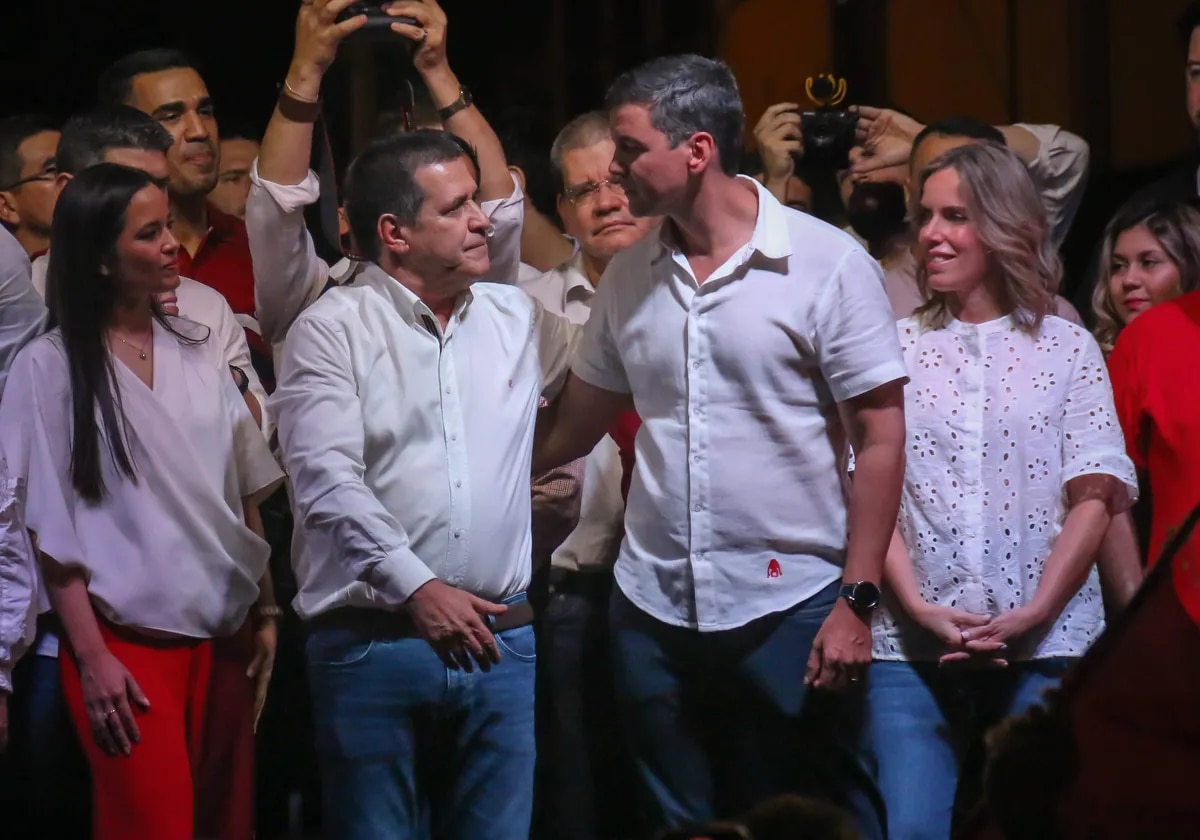
By Gustavo Setrini.*
The slogan of the presidential campaign has been “change”. The National Concertation affirms that Efraín Alegre and Soledad Núñez are “the only possible change”. The ANR tells us that with Santiago Peña and Pedro Alliana “we will be better off”. The palpable deterioration of the security and quality of life of most Paraguayans has worn down the legitimacy of our political authorities and the political model of the traditional parties. The situation demands that candidates avoid appearing to be “more of the same”.
In this context, particular emphasis has been placed on Santiago Peña’s supposed status as an “outsider” or neophyte in electoral politics. His supporters point to his academic credentials as evidence of his technical solvency, while his opponents question his party loyalty and his lack of militant and political management experience. However, the terms “outsider” or “neophyte” are somewhat euphemistic as a characterization of the Colorado candidate. Can the political figure of Santiago Peña be qualified as an “outsider”?
To consider a politician as an “outsider” would mean that he has accumulated his legitimacy and political capital in a field other than electoral politics and has used that legitimacy to enter relatively independently into the electoral dispute. For example, the figure of Fernando Lugo, who gained his political capital as a Bishop within the Catholic Church and then entered electoral politics from an alliance, but without being part of a political party, could be more precisely qualified as an “outsider”. His ability to mobilize votes originated outside electoral politics and political parties and this status even explained some characteristics, both positive and negative, of his presidential administration.
a possible Peña administration will have little or no fiscal space to address these urgencies of the general population. This makes it likely that the government will face a scenario of growing frustration and social mobilization, to which it could respond with a combination of clientelist co-optation of sectors sympathetic to the party and political repression of opponents. As president, Santiago Peña, far from representing a change, would be forced to give continuity to the same political model that has trapped the country for decades.
Unlike Lugo, Santiago Peña’s ability to mobilize votes is related to two factors: his close ties with Horacio Cartes (first as his appointed Finance Minister and then as an executive in Banco Basa) and his status as the elected candidate in the Colorado Party’s internal elections.
Peña’s academic and technical background is often remarked upon. While a credential such as his master’s degree in public policy from a respected program in the United States distinguishes him from candidates who gain access to positions in public office thanks to long electoral careers within the ANR. Without suitable credentials, it cannot be said that Santiago Peña accumulated his political capital through his prominence in academia or in the field of public policy or public administration, which are fields that in any case have little weight so far in the Paraguayan political dispute.
In this sense, to win votes, Santiago Peña will have to rely on two assets: the mobilization capacity of the ANR electoral machinery with its caudillos and leaders throughout the country, as well as the financing and political backing of Horacio Cartes, currently under siege by the US embassy sanctions.
Contrary to being an outsider, Peña is imprisoned to the dynamics of the Colorado Party. If he wins the elections, Santiago Peña will have to deal with internal opposition from the traditionalist faction of the Colorado Party, currently led by Mario Abdo Benítez, both within the Legislative Branch and within the party itself. The two factions represent not only two sides in dispute, but two different visions of the future of the party and its relationship with society and the State. In Santiago Peña’s recent speeches, one notes an effort to vindicate the populism and clientelism that traditionally mobilizes the party’s base. However, Peña does not owe his place to popular support, but to his ties with the business and economic elite, for whom clientelism and populism represent barriers to business political hegemony.
Notwithstanding the attempt to unify the party behind his figure, it can be anticipated that an eventual Peña administration will have little party discipline in Congress. He will face a great challenge to strengthen the legitimacy of his leadership in front of his own party. In addition, he will have to gain legitimacy in the eyes of the population in general, which means that he will have to face a context of deteriorating living conditions caused by the COVID 19 pandemic, accelerated inflation and significant deficits in areas such as health, education, transportation, social security, and development of industrial and service sectors with higher added value, which will generate higher quality employment.
Considering that a tax increase will be vetoed by the business sector close to the candidate, a possible Peña administration will have little or no fiscal space to address these urgencies of the general population. This makes it likely that the government will face a scenario of growing frustration and social mobilization, to which it could respond with a combination of clientelist co-optation of sectors sympathetic to the party and political repression of opponents. As president, Santiago Peña, far from representing a change, would be forced to give continuity to the same political model that has trapped the country for decades.
* PhD in Political Science from the Massachusetts Institute of Technology (USA).
Image source: ABC Color
